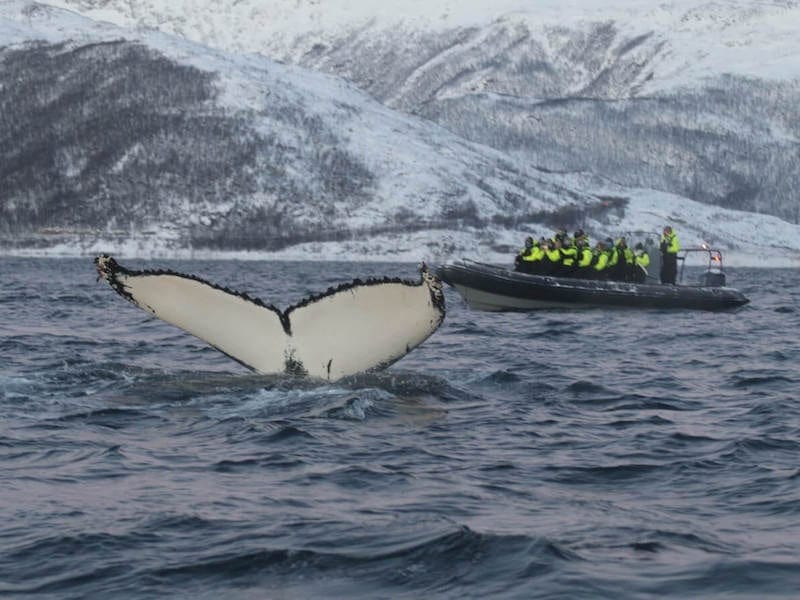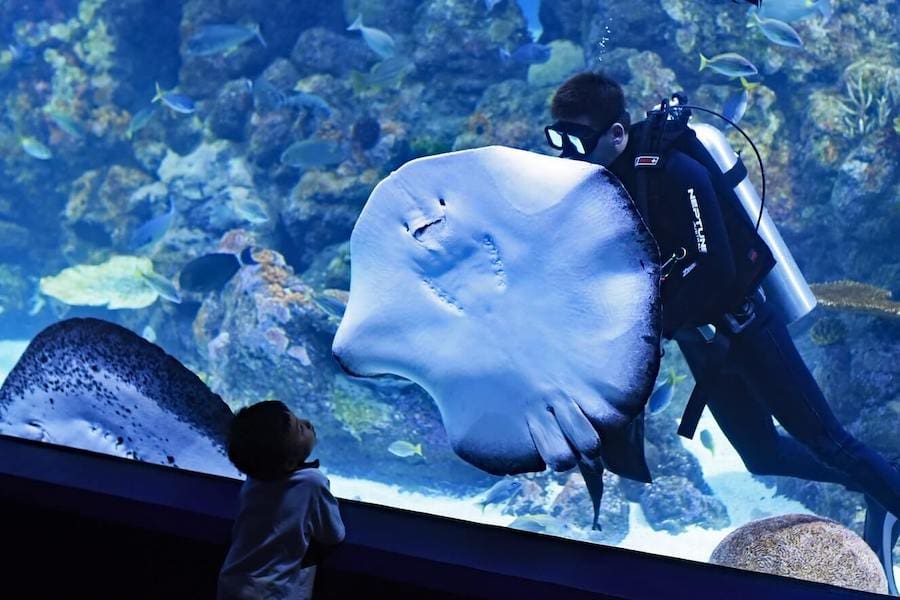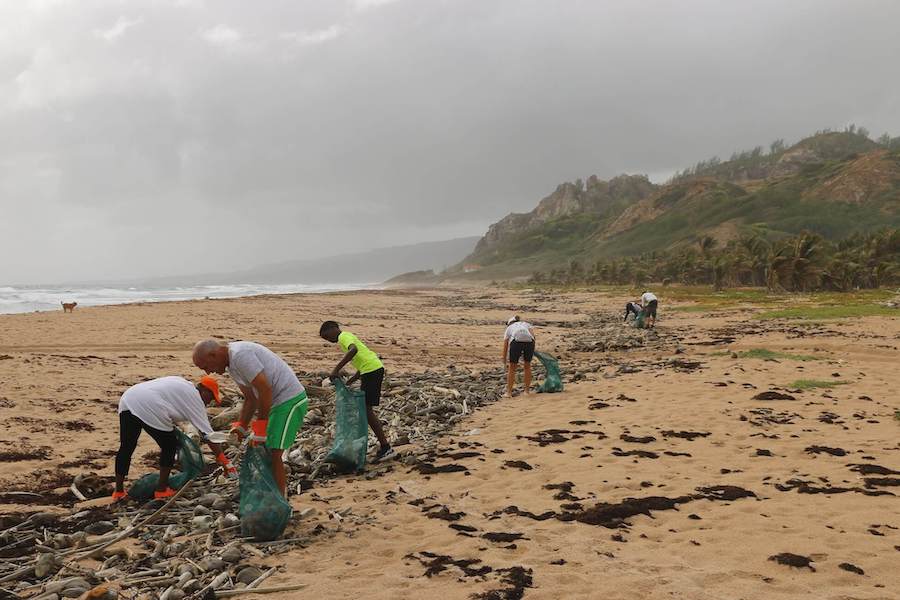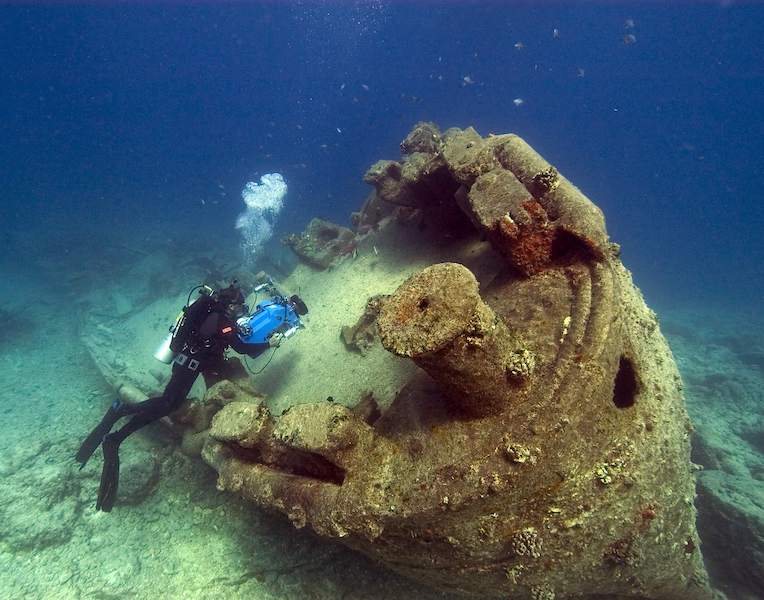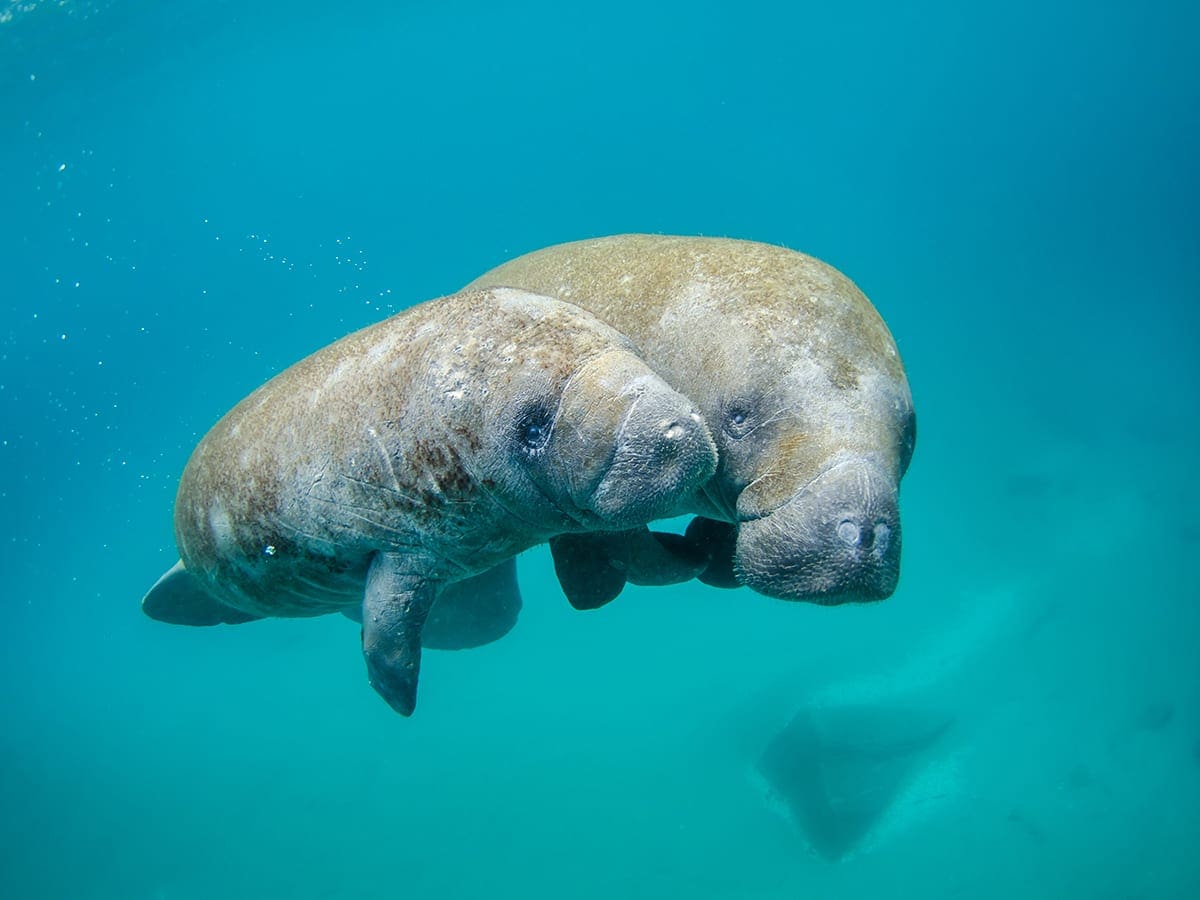When we hear the term marine biology, some of us may imagine a scientist testing aquatic samples in a laboratory or a scuba diver observing the beauty of underwater wildlife. Whether you want to stay dry on land or get your feet wet, there are several different aquatic science careers that you can pursue.
Careers dealing with the ocean don’t have to be all about the currents, pollution, or deep-sea exploration. Why not also consider opportunities working with marine life, archeology, or fisheries? Whether you’re interested in working in a laboratory or out in the field diving underwater, keep reading through this marine careers list to find the right fit for you.
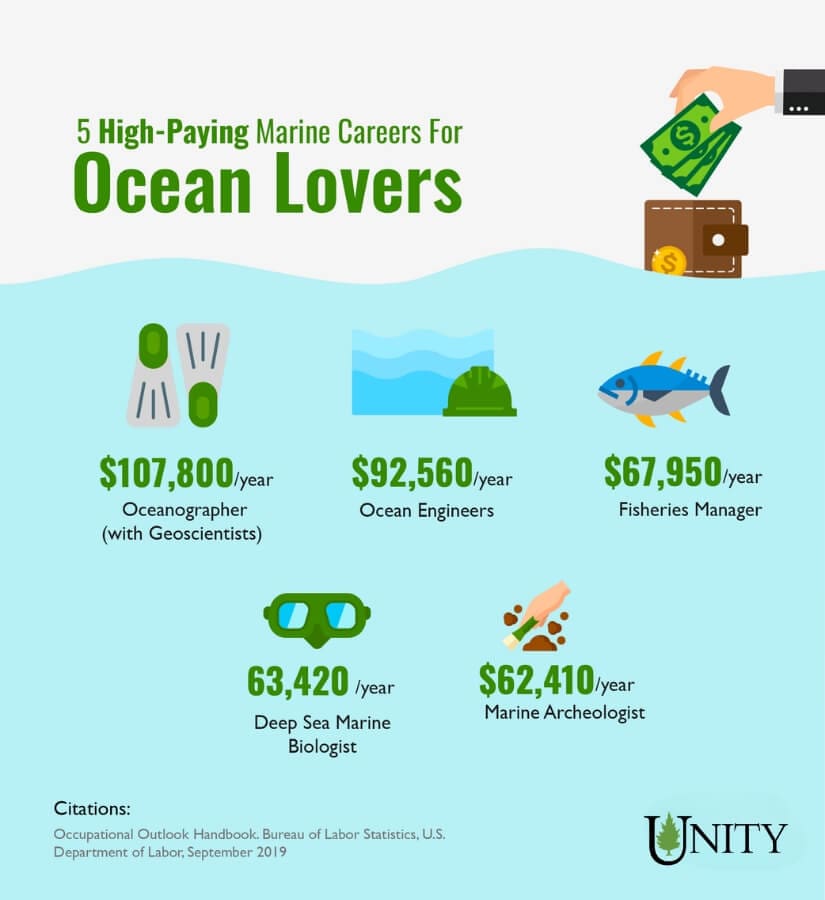
Is a Maritime Career Right for You?
What are maritime careers? These are careers that have to do with the ocean, ranging from studying currents, testing water quality, and handling marine wildlife. Professionals in this field must have a curious mind and a passion for the environment.
These individuals often find themselves exploring uncharted waters both in the deep sea and on land. If you’re passionate about marine life and want to make an impact on the environment, you may consider pursuing one of the many marine-related careers.
Careers in Marine Biology
Do you have a love for the ocean? Are you interested in jobs working with ocean animals like sea lions or whales? Why not consider one of the many ocean careers in marine biology. A marine biologist is someone who studies the ocean and its many different types of sea life from microplankton to whales.
Some marine biologists focus on saving endangered marine life while others may take samples from the field, with most of their work done primarily in a lab.
Careers in marine biology are essential in managing and finding solutions to chemicals, waste, and other pollutants that wind up in the waters endangering both sea and human lives.
Marine Life Rescue Jobs
Marine life rescue is an occupation related to water that is growing in demand. These water rescue careers focus on the health and conservation of wildlife. Marine rescue officers assist in the rescue and rehabilitation of injured or sick animals. These officers safely transport marine life that has become stranded or entangled to a facility where biologists, veterinarians, and other staff examine and rehabilitate the animal.
Marine animal rescue jobs can often be found at marine parks and rescue centers. Some entry-level and volunteer jobs may require a high school diploma. A bachelor’s degree may be necessary for higher-level roles such as management or specializations.
- Annual Median Salary: $23,950 per year
- Typical Entry-level Education: Bachelor’s Degree
- Recommended Degree Program: B.S. in Wildlife Biology
Jobs Working With Whales
Those looking to pursue a career working with whales may consider becoming a marine mammal trainer. These trainers often work at aquariums, marine parks, and even museums. Some marine mammal trainers may choose to work with the animals while others may opt to organize or direct educational programs. While these trainers work within centers, scuba diving and strong swimming skills are required in order to keep up and work with the whales.
Marine mammal trainers typically hold a bachelor’s degree. Additional certifications are often required in addition to a degree. These certifications include first aid, CPR, and scuba diving.
- Typical Entry-Level Education: Bachelor’s Degree
- Annual Median Salary: $63,420 per year
- Recommended Degree Program: B.S. in Animal Health & Behavior
Marine Mammal Rehabilitation Careers
Marine mammal rehabilitation centers have many jobs that help marine animals. These jobs range from working as a program educator to keeping wildlife healthy. One of the highest paying marine jobs in rehabilitation is a wildlife veterinarian.
These veterinarians typically work at marine parks, zoos, aquariums, and research facilities. They give the marine animals exams, administer medications, and perform surgery as needed for injuries and illness.
Depending on the type and level of career sought after, the required education may vary. At a minimum, these jobs require a bachelor’s degree. Those seeking a career as a veterinarian will need to continue their education to complete a veterinary science program or veterinary school.
- Typical Entry-Level Education: Bachelor’s Degree
- Annual Median Salary: $93,830 per year
- Recommended Degree Program: B.S. in Captive Wildlife Care

Ready To Learn More About Unity Environmental University?
Careers in Ocean Preservation
The preservation of our oceans and other bodies of water are not only important to marine life, but to humans as well. Having clean waterways free of hazards such as chemicals and waste, while essential to the environment, has become a challenge in today’s world. Jobs saving the ocean are increasing in demand. These roles are important in keeping our water clean and safe.
Jobs Cleaning the Ocean
If you have a passion for the environment, consider pursuing a career in aquatic toxicology. Toxicologists study the types of contaminants that are hazardous to marine organisms, vegetation, wildlife, and humans in aquatic environments. While they spend very little of their time in the field, their work in the lab is valuable. Toxicologists spend much of their day testing samples, analyzing or collecting data, and creating reports.
To pursue a career in aquatic toxicology, a bachelor’s degree is required though many continue their education to obtain a master’s or doctorate. Biology, chemistry, and physics are a few programs of study to consider when pursuing a career in this field. Here are a few highlights relating to this occupation:
- Annual Median Salary: $58,230 per year
- Typical Entry-level Education: Bachelor’s Degree
- Recommended Degree Program: B.S. in Marine Biology and Sustainable Aquaculture
Jobs as a Hydrologist
Hydrologists play an important role in keeping our oceans and other bodies of water safe for wildlife and humans. They not only study the movement of water, but also water quality. They spend a considerable amount of time in the field, taking samples to test for and measure the level of pollutants.
Though they spend quite a bit of time out in the field, hydrologists also work in labs testing samples taken, analyzing data, and creating reports. Hydrologists need a bachelor’s degree at minimum, though many in this occupation complete a master’s program.
- Annual Median Salary: $79,370
- Typical Entry-level Education: Bachelor’s Degree
- Recommended Degree Program: B.S. Environmental Science and Climate Change
Jobs That Involve Diving and Going Underwater
Many marine jobs involve spending time in the water. Sometimes this could be wading out to take a sample, though most often diving and being fully submerged is necessary. Marine archeology and deep-sea marine biology are two ocean jobs where the workers spend a good amount of their workdays in the water.
Marine Archeology
Marine archeologists have an exciting career exploring the waterways and ocean floors. Marine archeology is the excavation and restoration of underwater discoveries. Many skills are necessary to pursue and be successful in this field.
These folks must have a curious, analytical mind. They’ll use technical and robotic equipment to locate and record archeological sites. Marine Archeologists also spend time in the water, so a diving certification is often a requirement.
Professionals in this field often complete degree programs in history, oceanography, or geology. Marine archeologists generally hold a master’s degree, though some pursue a doctorate in order to advance into independent and higher-level research roles. Below are a few facts that those considering this profession should consider:
- Annual Median Salary: $62,410 per year
- Typical Entry-level Education: Master’s Degree
- Recommended Degree Program: Master’s in Professional Science
Deep Sea Marine Biologist
Deep-sea marine biologists study deep-sea animals and microorganisms along with their habitats. While some scuba diving may be necessary, these biologists typically spend more time in front of a computer than they do in the water. They often use video cameras and remote-controlled equipment to explore the deep sea depths, mapping the ocean floor and studying marine life.
Underwater biologists must have strong research and analytical skills. They’ll spend time writing papers and reports in addition to interpreting large datasets. Marine biologists often head out on research cruises with other professionals in the field, so they must work well in group environments and with groups in confined spaces. Below are some key facts that should be considered when pursuing this career:
- Annual Median Salary: $63,420 per year
- Typical Entry-level Education: Bachelor’s Degree
- Recommended Degree Program: B.S. in Marine Biology and Sustainable Aquaculture
Marine Jobs that Stay on Land
When people think of marine jobs, they often think of working underwater. While it is true that there are many jobs involving swimming and diving, there are also jobs that are spent on land, in a boat, or in a fishery. Jobs related to fishing and harvesting fish or growing in demand. Below are aquatic careers where most, if not all, of the work is done on land.
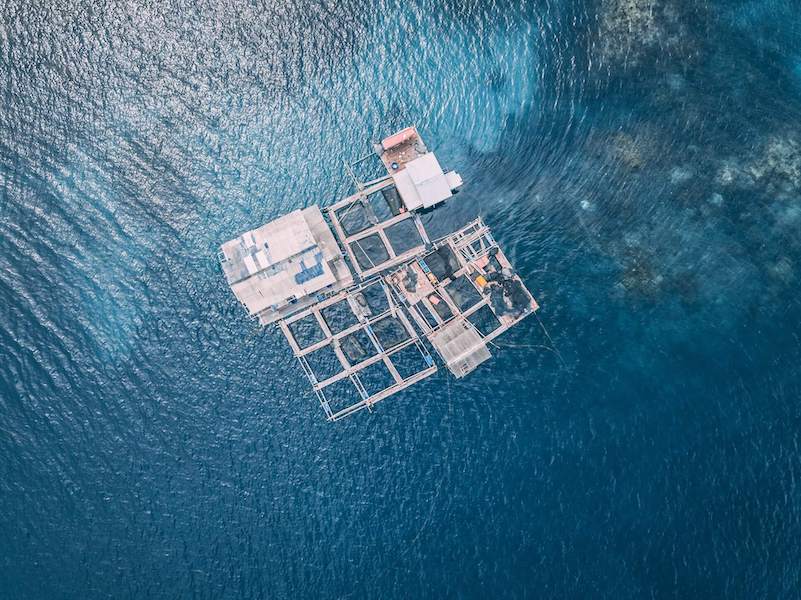
Jobs as an Aquarist
Aquarists work in aquariums and may have a variety of responsibilities depending on their position and experience. They work with a variety of marine life from fish to large mammals. They may be responsible for maintaining the tanks and equipment, feeding the wildlife, leading visitor presentations, and working with the wildlife.
While many responsibilities of an aquarist may be handled outside of the water, some time is still spent in the water. A bachelor’s degree in zoology or marine biology is encouraged. While completing a degree, students may seek internships or part-time jobs at aquariums or zoos.
- Annual Median Salary: $23,950 per year
- Typical Entry-level Education: High School Diploma
- Recommended Degree Program: B.S. in Marine Biology and Sustainable Aquaculture
Working as a Fisheries Manager
Fisheries managers oversee the day to day activities at fisheries, where fish are raised for commercial purposes. Their duties could include a variety of responsibilities including maintaining equipment, monitoring growth, training team members, and record keeping. They must work well in groups as they often are required to collaborate with other team members as well as managers from other facilities.
A fisheries manager won’t spend time in the water but will spend plenty of time around it when it comes to maintaining the pools and tanks where the fish are kept. A bachelor’s degree is often necessary for this field.
- Annual Median Salary: $67,950 per year
- Typical Entry-level Education: Bachelor’s Degree
- Recommended Degree Program: B.S. in Wildlife and Fisheries Biology
Having a Job as an Aquaculturist
Aquaculture is one of many types of marine conservation careers. Aquaculturists work to ensure that the fish and shellfish populations remain at healthy numbers by raising and harvesting these marine animals. The fish are raised for commercial purposes to be sold as food and also for restocking bodies of water for recreational fishing. Aquaculturists must understand the development of fish and shellfish to ensure that the fish are healthy and safe to eat.
While a high school diploma may be accepted for entry-level marine jobs in this field, it is beneficial to have a bachelor’s degree. Those with degrees often see career advancement, higher salary, and work in higher-level roles such as managerial positions. Areas of study include programs relating to fisheries and biology.
- Annual Median Salary: $26,560 per year
- Typical Entry-level Education: High School Diploma
- Recommended Degree Program: B.S. in Marine Biology and Sustainable Aquaculture
Dive In…
Now that you’ve learned about careers related to oceanography, you understand some of the many maritime occupations and their varying responsibilities. Did one of these underwater careers stick out to you?
Perhaps you want to spend your time in the depths of the sea mapping the ocean floor and learning about deep-sea creatures. Or, maybe you want to keep your feet dry and help maintain the fish and shellfish populations.
No matter the path you choose, Unity Environmental University can help you start on the right foot with a degree in environmental or marine science.
Learn more about how you can turn your passion into a career – with from Unity Environmental University.
Degree Programs


